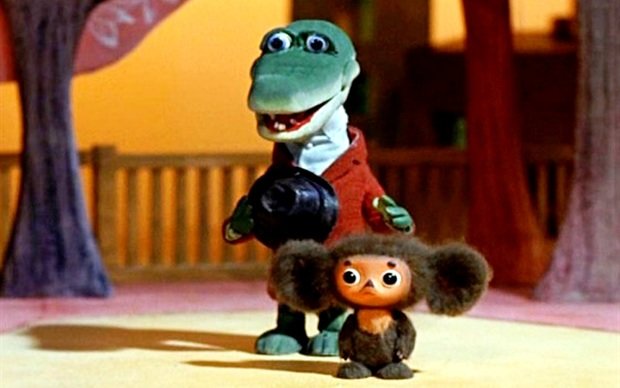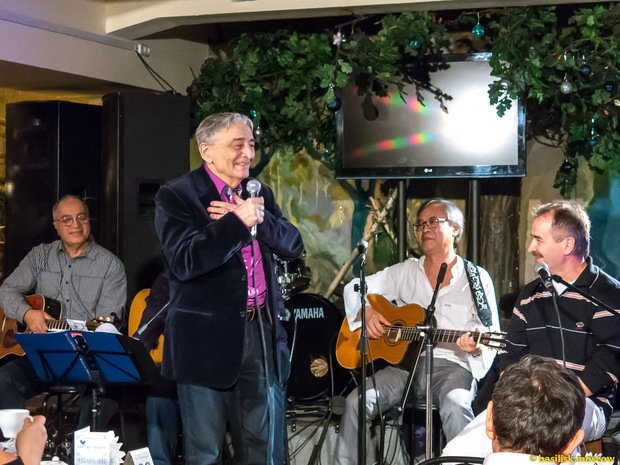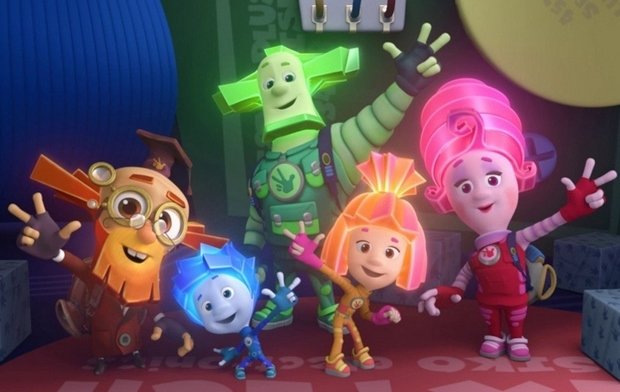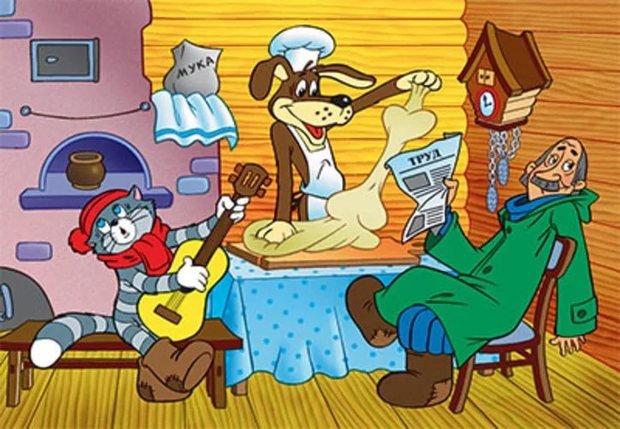''Uspensky made the headlines. Yes, they’re scandalous but for 'adults''
Critic of children's literature Ksenia Moldavskaya about why this writer will be read for long
One of the most famous Soviet and Russian writer of children's books Eduard Uspensky passed away on 14 August. He was 80, cancer became the cause of his death. Uspensky's first book, Uncle Fyodor, His Dog and His Cat, came to light in 1974. A series of cartoons about Prostokvashino was shot soon, which made the writer famous across the union. He is the author of over 80 books, two feature films were shot based on his compositions. Uspensky was also as famous TV and radio host. Realnoe Vremya talked with critic of children's literature Ksenia Moldavskaya about the late writer and person.
Why is Eduard Uspensky's contribution to children's literature remarkable?
He created a new character – an absolutely apolitical character who lives his own life and dreams of friendship. On 15 August, Mikhail Vizel wrote on Facebook that Cheburashka and Crocodile Gena were symbols of the era, romantics of the 60s. I don't agree with him anyway because both Gena and Cheburashka are losers who had no place in Soviet literature, even in romantic Soviet literature in the 1960s. They are losers and gather the same losers around themselves. They don't have a leader, party leadership, they came who knows where from. And wonderful friendship turned out, while the characters became not only archetypal but also more popular than Chapayev. And I think if there weren't created a cartoon about Cheburashka, these characters would anyway be very popular. Though the cartoon couldn't help but be born.
The same thing happens to other his characters. In fact, he described the world of an escapist, while the escapist has no place in official children's literature, moreover, even now.
Including Uncle Fyodor from Prostokvashino?
Uncle Fyodor is also an escapist. His parents dreams of a fate of escapists. They create their own society, and this is a very interesting experience.
Why did these characters become so popular in the USSR where it was constantly said about socialisation and civil duty?
Because at the same time everyone dreamed of going somewhere. They wanted to go to a calm, cosy, invented world. Do you remember the symbol of the last decade of the Soviet power, late Soviet Union? It's a kitchen where people gathered, whispered and talked loudly, talked about their own themselves, their private life, about friendship.

''Both Gena and Cheburashka are losers who had no place in Soviet literature, even in romantic Soviet literature in the 1960s. They are losers and gather the same losers around themselves.'' Photo: youtube.com
Why is Cheburashka so popular in Japan then? Moreover, he became the permanent mascot of the national team of Russia at Olympic Games.
It's fluffy and has ears. As for the Olympics, it doesn't want to win anyone, it doesn't have and has never had aggression. This is a paradox, in fact, that absolutely unaggressive character becomes a symbol of the Olympic Games where an aspiration for victory is the most important thing.
What is said now among writers concerning Uspensky's death?
He helped plenty of people, he became a godfather of at least a third of the authors of our contemporary children's literature. On 15 August, Facebook was full of words: ''My first book brought out thanks to him.'' He responded to many authors and helped them. For instance, I know two stories. I was studying at Lenin Moscow State Pedagogical University, and Uspensky was to give a speech there. But too few people came to his speech. He was offended, got angry and said he wouldn't give a speech and would go. My classmate Tatiana Rik caught up with him on the stairs and said: ''Mr Uspensky, sorry, I came to the meeting with you, could you have a look at my fairy tales?'' ''Bu-bu-bu,'' replied Uspensky but took the fairy tales, had a look and offered Tanya to ''call just in case''. One year later, when Tatiana became disabled, he suddenly remembered about her because her fairy tales were instructional. It was the moment when he was creating Samokat publishing house and Funny Books series. And he wanted something real. He helped her, and her first books came to light with Uspensky's blessing. He also tried to help her with treatment and sincerely participated in her fate. He was a very sincere and smiling person.
Olga Fiks has recently printed Chimera's Smile novel in Vremya publishing house – it's a very good book, which I advise to read, it will have a big future. She has written to me today on Facebook that when she was 17 years old, she dared and also asked Uspensky to read her texts. He was a harsh person, not polite. He read, grimaced and then said: ''Take your papers back. At least, you aren't disgusted to read it.'' And she's very thankful to him. Because it's a considerable praise. By the way, in the comments on this story, it turned out Tatiana Rik, who came because of her own books, was accidentally present at this meeting in Uspensky's workshop and remembers this scene very well.
Many people remember him with huge gratitude. My page on Facebook is a platform about children's literature, all people write ''thanks, teacher'' there. It's a leitmotif.

''He helped plenty of people, he became a godfather of at least a third of the authors of out contemporary children's literature. On 15 August, whole Facebook was full of words: ''My first book brought out thanks to him.'' Photo: basilisk.livejournal.com
He also participated in the creation of the programme Goodnight, Babies!, hosted Ships Entered Our Harbour on radio first and then on different channels. What can a you say about it?
Not only he created Goodnight, Babies!, I also had a chance to write scripts. And when my children were in the kindergarten, they were very proud of it. Goodnight, Babies! had been existing before Uspensky, and I think it will continue existing after him. But he was talented – he knew how to catch the spirit and gist of the time, give people what they dreamed of, perhaps even unwittingly. And his programme Ships Entered Our Harbour has been airing for 20 years! It's a huge age. This programme became an era that made the old generation feel some stability, a link with the past.
And what do you think of his new characters he created after Perestroika, for example, Fiksiki?
I wouldn't like to talk about it now. It's not the time. I have an ambiguous opinion about them.
Why didn't Uspensky's characters get lost with the dissolution of the USSR but confidently competed with cartoon characters who came from abroad?
Because they exist outside time and outside real space, though their characters are absolutely real as well as collisions. And it's escapism that Uspensky declared by his compositions of the golden age, a surprising occurrence. It seems to be for the good of our society. And at the same time, it resembles an anecdote about ''giving everything up and going to Uryupinsk''. The action in his books takes places in conditional Uryupinsk. And we still all want to go to Uryupinsk. And not only we.
Uspensky's compositions were popular in the USSR, in the post-Soviet era he was also famous as a character of notorious cases about defending an author's right, for example, he sued Soyuzmultfilm. How did he manage to do it physically?
As for patents, he did absolutely correct because children do so: when they like something, they easily appropriate it. Moreover, it's not theft but acquaintance with the world. And when some children grow up, it seems to them what he appropriated in childhood continues being their property. They don't think their children books have authors. I don't know how Uspensky lived during Soviet power, though he wasn't poor by the 90s. He had a chance to go abroad when few people could afford it because he was a friend of Finnish writer Hannu Mäkelä, they translated each other.
Uspensky wasn't a poor man. He didn't sue because of money or financial benefit. He sued because of the honour of children's literature because all his actions are actions against thieves. He went ahead as an icebreaker showing to other authors it was possible to win thieves. And he showed to thieves that writers of children's books weren't weak and they weren't kids who couldn't reply and whom older boys could approach and take money from their pockets. That children's writers had teeth, fangs and even claws and they were quite able to run over and trample. Uspensky used his importance to eliminate someone. And he did it, he knew how to do it.

''He went ahead as an icebreaker showing to other authors it was possible to win thieves. And he showed to thieves that writers of children's books weren't weak and they weren't kids who couldn't reply and whom older boys could approach and take money from their pockets.'' Photo: teleprogramma.pro
Moreover, thus he made the headlines because children's literature for the ''serious'' media isn't the news. We have Kniguru competition for the best composition for kids and teenagers, which has been existing for long. It's a unique competition that doesn't have analogues in the world. But it's the news for ''serious'' newspapers. Moreover, when Kniguru laureates are awarded on the same stage with laureates of Big Book, hosts talk down to young writers: ''Don't worry, you will grow up and also write a big book for adults.''
So Uspensky made the headlines. Yes, they're scandalous but for ''adults''. This is why the business, economic, social and political press for adults wrote about him.
The Chukovsky Festival – the biggest children's literature festival held in Moscow and in Peredelkino on different sites that gathers writers, artists and a big number of kids – was created under him. Will the festival keep existing after his death?
Of course, it depended not only on Uspensky, a team works there. Undoubtedly, much turns on our culture department, and I hope it won't stop financing.
I bow low to Mr Uspensky for this festival because organisers turned to him first as a tank and icebreaker, the person who was able to cope with any red tape. And this festival has been existing for 12 years already thanks to Uspensky. It's an open space where writers and poets of children's books from different cities gather. And most importantly, this festival exists together with Chukovsky's award, which is the only award in our country to be given to young poets, it doesn't have awards for prose, only for poetry. And it's very good that the Chukovsky guys – Sergey Belorusev, Pavel Kryuchkov, Sergey Agapov – are employees of an office of the Literary Museum, Chukovsky's dacha in Peredelkino had the time to award Mr Uspensky himself, moreover, in nomination Most Chukosvky Person. It's a correct award in terms of both the scale of the personality and the scale of the public importance.
Can we say Uspensky's art will remain for centuries? He didn't appreciate himself highly, he called himself an artisan, not genius…
He was flirting. He will be read for long because the books that are read by generations live longer. And generations read Uspensky. How many generations have changed since the 60s? It's the books our grandmothers grew up with.
Does he have literary heirs? Who follows on his footsteps?
This question seems to be unsuitable because the beauty of literature is that every writer has his own unique voice. Literature isn't a school composition made up by an algorithm. Uspensky has pupils whom he supported. He supported many people and even famous and great Andrey Usachyov at the beginning. He helped Stas Vostokov and many others. He has pupils, and it's his main heirs. His authority allowed our young children's literature to survive the 2000s, when nobody believed in Russian authors expect Uspensky and Oster, and to go back to bright pages in all their splendour.

''The books that are read by generations live longer. And generations read Uspensky. How many generations have changed since the 60s? It's the books our grandmothers grew up with.'' Photo: youtube.com
What's happening in Russian children's literature now, in general? What bright names can you call?
It's a long story. I give a four-hour lecture about post-Soviet children's literature. Now I can name two bright projects. The first one is the Chukovsky Festival with four events Hello, Summer! And Goodbye, Summer! take place in Peredelkino, and Korney Chukovsky's birthday and the Chukovsky's award ceremony in the Writer's House. Admission is free. And many interesting writers one should pay attention to give a speech there. They are interesting, funny, know how to talk with the audience. This is why if parents of the primary school and pre-school children want to know something about new literature, they are welcome to the literary campfire or the Chukovsky Festival in the Writer's House.
The second bright project is for older people. Now Egmont Russia publishing house has renewed the edition of two series, which closed in the 2000s for sad reasons, though made themselves very known. It's Motley Square and City of Masters series. It's poetry and prose for readers from 6 to 14 years. Wonderful books are printed there. City of Masters has printed one of the best books in the last 15 years – Kulikov Battle Veteran, or Transit Contemporary by Pavel Kalmykov. Artur Givargizov made up these two series. He is one of the most talented writers of our era and the generation of writers ''over 50''. One should pay attention to this series because Givargizov's list is a ready reading list.
Has anything changed in ethic guidance in contemporary children's literature in comparison with what Uspensky wrote in his best period?
In a word, no, nothing has changed. Honour is still respected, friendship is still appreciated. And there have always been enough rascals who try to fit in and approach by all means.